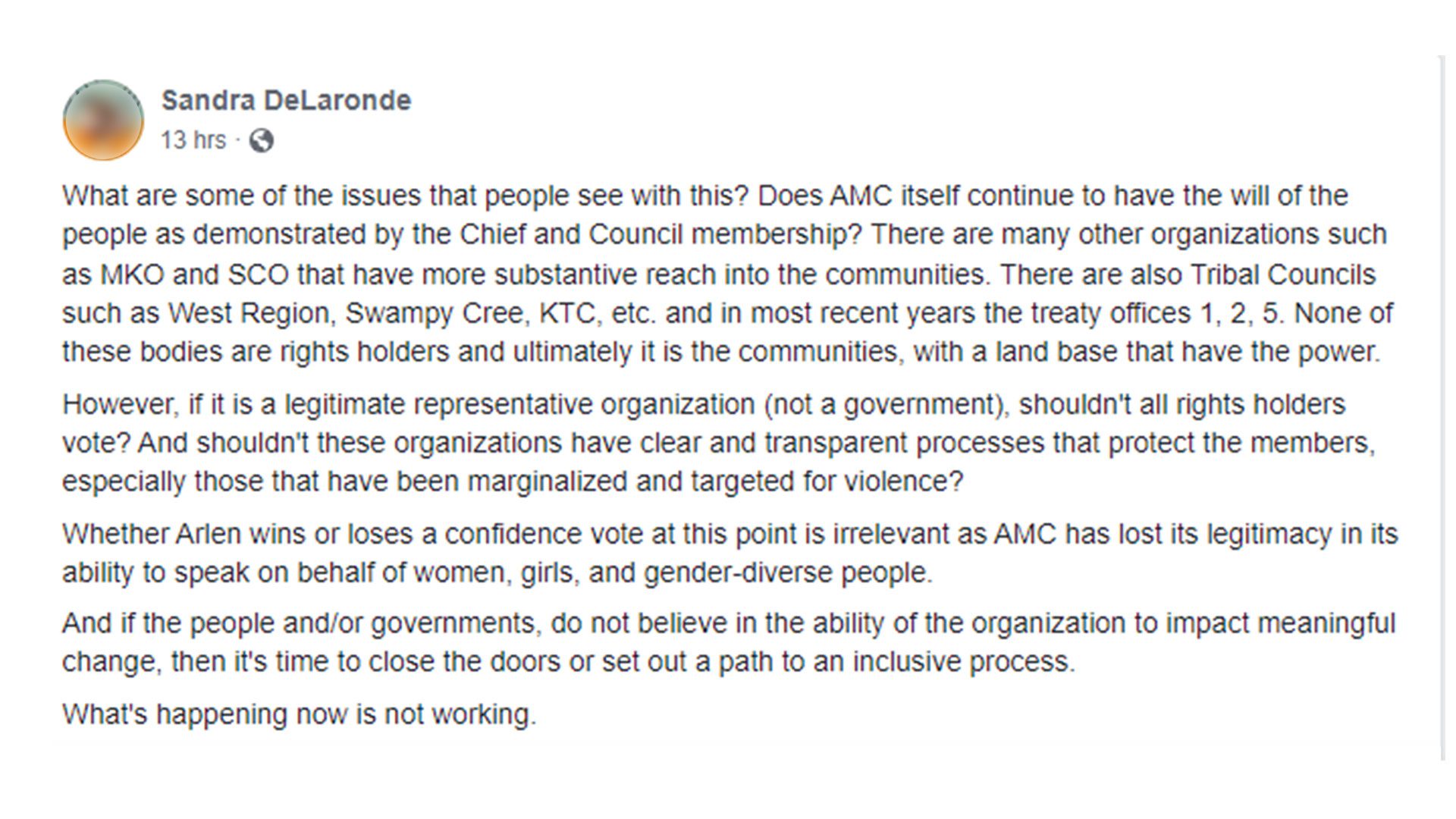
The downtown Winnipeg headquarters of the Assembly of Manitoba Chiefs. Photo: APTN file
A non-confidence vote has been called on the leadership of Arlen Dumas, who was suspended March 18 as grand chief of the Assembly of Manitoba Chiefs following a sexual assault allegation.
The vote will happen at a special meeting sometime in May, the organization that represents chiefs of 62 First Nations in Manitoba said in a news release.
“The Constitution of the Assembly of Manitoba Chiefs (AMC) outlines a code of conduct for elected officials, including the Grand Chief,” the release said. “Grand Chief Arlen Dumas will have the opportunity to address the Chiefs-in-Assembly prior to the vote taking place.”
The suspension followed an accusation from a senior AMC staff member, who also filed a complaint with Winnipeg police. The woman alleged she was sexually assaulted and sexually harassed on the job.
Dumas has not commented publicly on the accusations or his suspension. The allegations against him have not been tested or proven in court.

Under the Criminal Code of Canada, sexual assault occurs “if a person is touched in any way that interferes with their sexual integrity: this includes kissing, touching, intercourse and any other sexual activity without his or her consent.”
The Assembly of Manitoba Chiefs (AMC) said a workplace investigation it promised in the wake of the allegations continues. It noted a non-confidence vote will occur “regardless of the results of the investigation.”
AMC has not held a news conference or given any interviews since the scandal broke. It has not revealed whether Dumas is suspended with or without pay.
Meanwhile, about two dozen people rallied outside AMC’s downtown Winnipeg office after Dumas was suspended. They called on him to resign.
But that’s all they can do.
AMC does not directly represent citizens of First Nations, said Sandra DeLaronde, executive director of Manitoba Moon Voices, which advocates for Indigenous women.
In a lengthy post on her Facebook page, DeLaronde questioned whether AMC has “the will of the people as demonstrated by the Chief and Council membership? There are many other organizations such as MKO and SCO that have more substantive reach into the communities.”
MKO and SCO – Manitoba Keewatinowi Okimakanak Inc. and Southern Chiefs Organization – are lobby groups that represent First Nations chiefs in the northern and southern halves of the province. The same chiefs also serve as members of AMC.

In her post, DeLaronde wondered if AMC is “a legitimate representative organization (not a government), shouldn’t all rights holders vote? And shouldn’t these organizations have clear and transparent processes that protect the members, especially those that have been marginalized and targeted for violence?”
She also points out that AMC, MKO, SCO, various tribal councils and treaty offices are not rights holders.
“Ultimately it is the communities with a land base that have the power,” she wrote.
“Whether (Dumas) wins or loses a confidence vote at this point is irrelevant as AMC has lost its legitimacy in its ability to speak on behalf of women, girls, and gender-diverse people.”
DeLaronde added, “if the people and/or governments” don’t believe AMC can impact meaningful change, then “it’s time to close the doors or set out a path to an inclusive process. What’s happening now is not working.”










